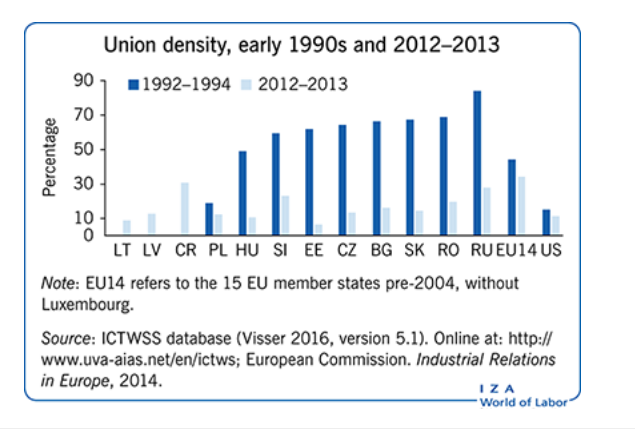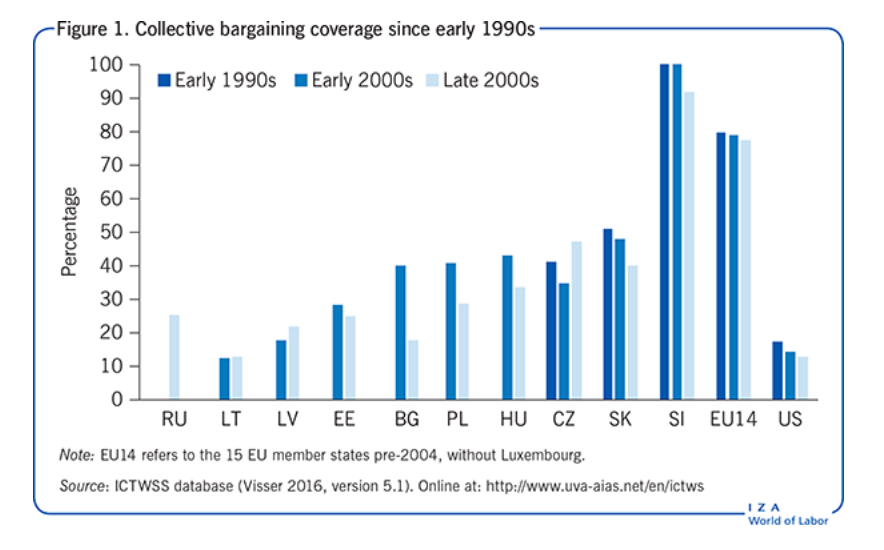While unionization and collective bargaining coverage remain low, the wage premiums associated with collective bargaining have increased, and the surviving unions successfully protected their members during the 2008–2009 economic crisis.
Trade unions in CEE countries are weak and fragmented following a sharp decline in unionization during the period of economic transition

The institutional adjustments related to EU accession played a crucial role in strengthening unions. The unionization outlook is less clear, as several factors are further weakening unions’ presence. Policy support for improving social dialogue and developing better industrial relations may benefit employees, employers, and the government.
For more details we encourage to read the full article “Do trade unions in Central and Eastern Europe make a difference?”. All papers published by IZA World of Labor are available for free on the website www.wol.iza.org.
Few workers are covered by collective bargaining in CEE


